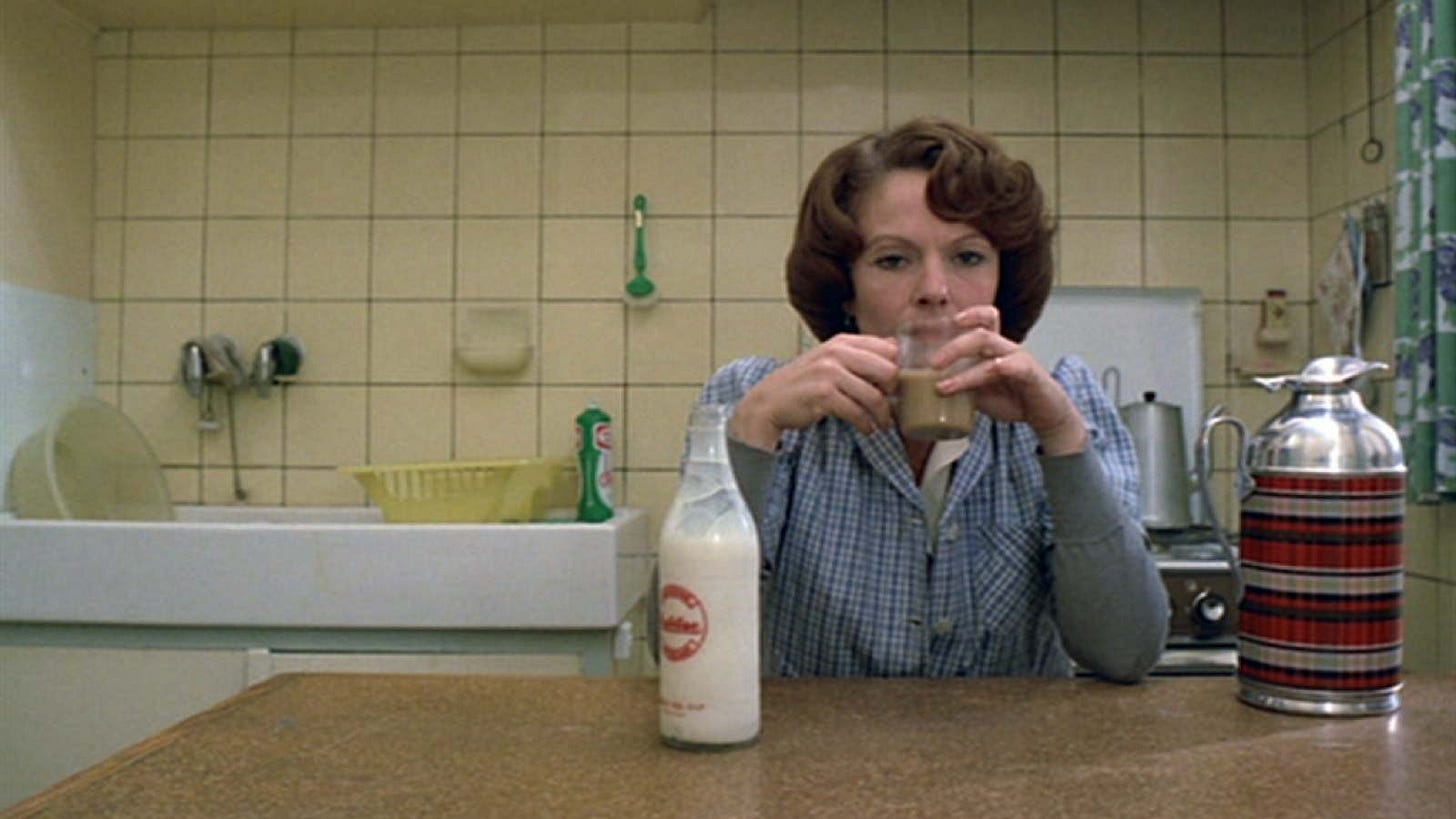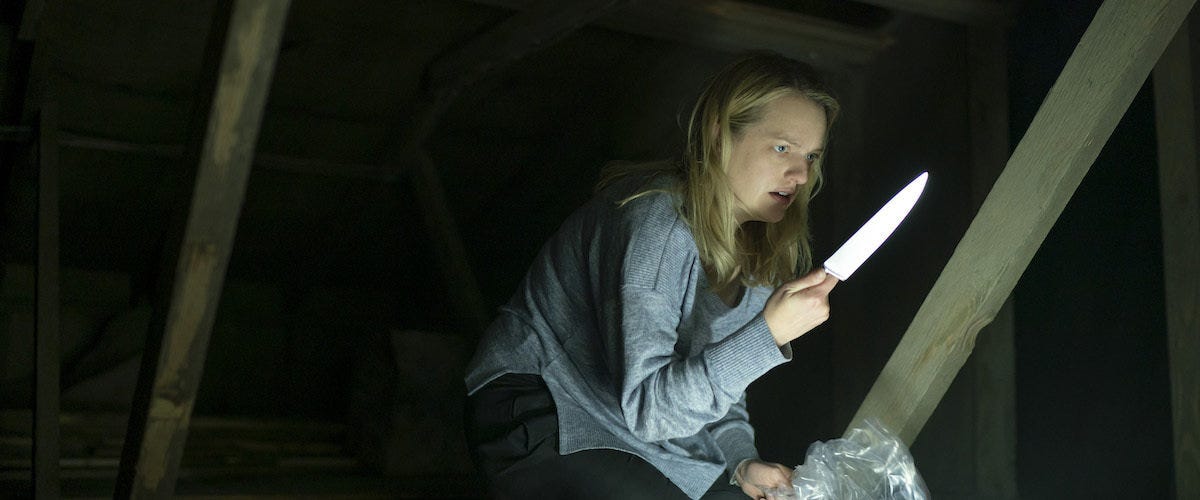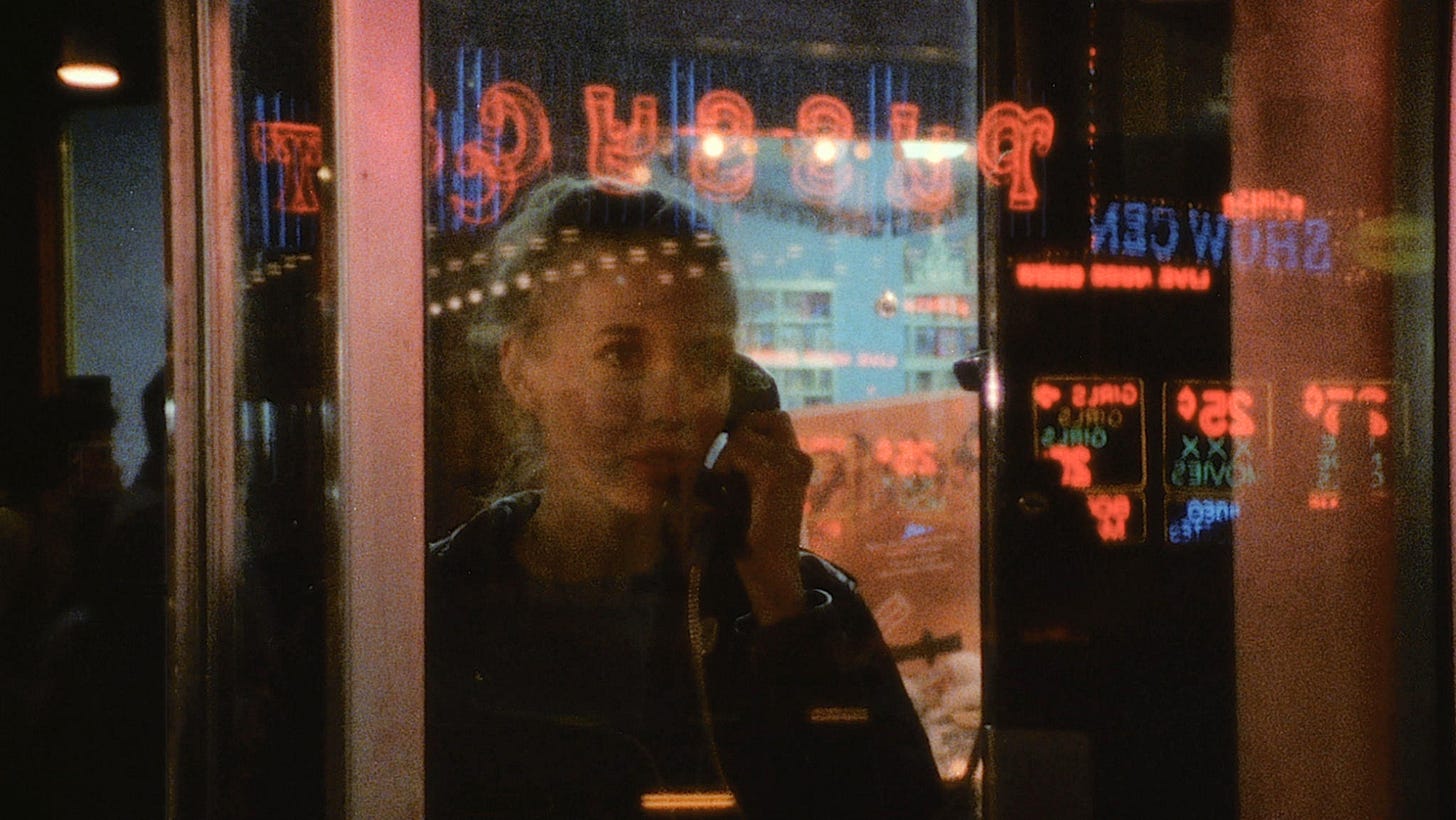Being alone makes you think. When the mind naturally wanders, it can stroll right through those walls providing cover from the outside world. Anything and everything becomes possible. Scenarios, possibilities, and doubts play out like short films in your head. We try to stay rooted in the present moment through various means of work and creativity, but distractions only do some much. Eventually, you’re right back where you started, thinking and wandering.
Since the spread of COVID-19 has forced so many of us into strange living situations trapped indoors, I’ve been thinking a lot about how depictions of isolation translate to screen. More specifically, the ways in which genre films about lonely people can uniquely illuminate disturbing realities about gender inequality, mental health, and class division.
This issue of Afterglow examines three very different films, all featuring female leads who spend a good amount of time by themselves. Some choose to, and some are forced to. One of them only thinks she’s alone, but not for very long. Two of these films are directed by women and considered landmark pieces of cinema. The other was unceremoniously released theatrically right before the pandemic, and largely ignored by mainstream critics outside of a few vocal champions. All three are innovative, probing, and daring in their own ways, and most importantly, tell us a good deal about what it means to try and forget, and be forgotten.

Jeanne Dielman, 23 Commerce Quay, 1080 Brussels
(1975, Chantal Akerman, Criterion Channel)
Arbiters of mainstream entertainment like to smugly promote a very limited definition of what constitutes “exciting” cinema. Most audiences follow along, recognizing only the virtues of linear, cause/effect storytelling simply because it’s comfortable and has a beginning, middle, and end. As if all of our individual experiences and emotions could fall into one westernized, Hollywoodized, homogenized category. This is misguided of course, and sometimes the greatest films seem to be about nothing on the surface. But underneath that “nothing” is everything. Through the mundane, we truly begin to see how small compromises and indignities fuel cycles of unhappiness and torment, if only we are patient enough to pay attention.
Chantal Akerman’s 1975 masterpiece follows three days in the life of a Belgian widow, and it doesn’t just position the character’s routine as a backdrop to the narrative; it IS the narrative. At 3+ hours, this meticulously filmed chamber piece watches and records every aspect of a woman’s work, the processes, the timing, the placement of hands and the order of things. We get to know every inch of Jeanne Dielman’s (Delphine Seyrig) apartment, what she does there, and how she does it. The why, though, is never in question. Jeanne may no longer have a husband, but she still serves many masters: her teenage son Sylvain (Jan Decorte) who can hardly muster enough energy to converse at the dinner table; her clients, older men who visit the house once a week for sex; and her society, which demands that women like her embrace a psychological mindset defined by labor and emotional quarantine.
Jeanne Dielman could be described as “slow cinema,” in the sense that it makes art out of depicting rigorous, tedious repetition. But really it has the most action of any film I can remember. Almost every scene, every second is concerned with patiently watching Jeanne do something, none of it for herself. Both she and the viewer are almost unprepared for the few moments of solace and contemplation that do come. How does one relax or enjoy anything when your entire life revolves around sacrificing for others? It’s not surprising that she quickly jumps to the next task when the discomfort becomes too much to bear.
Calling Jeanne lonely would be incorrect; she doesn’t have the freedom to feel loneliness. She’s more enslaved than anything, to a family, masculinity, capitalism, cooking. There’s no joy here, just the next meatloaf to be made. But everyone has their breaking point, even this Spartan caretaker. And watching the cracks in her Suzy Homemaker facade begin to spread is marvelous to behold. When the tectonic shift does inevitably occur, like the Earth itself, Jeanne releases that stress and tension in one tremendous explosion of energy. Then finally, she can sit alone, think, and smile.

The Invisible Man (2020, Leigh Whannell, VOD)
There are few expressions of happiness or ease in Leigh Whannell’s devilish, kinetic reimagining of the 1933 horror classic (itself based on the H.G. Wells classic) about a tortured woman who simply wants to be left alone, and the insecure, unseen, psychopathic genius who won’t let her. Cecilia (Elisabeth Moss, never doubt her) spends the film’s suspenseful opening carrying out a planned escape from an abuser boyfriend’s San Francisco tech-bro compound. But even after she finds out that he’s committed suicide immediately after this mad dash, her newly realized repose doesn’t feel real.
And it isn’t. Cecilia eventually understands that her abuser has just changed tactics, gone nuclear, using his scientific brilliance to formulate a new and even more disturbing way to control her physically and emotionally. Whannell’s careful pacing and bone-crushing violence, an aesthetic he brought to 2018’s superb Sci-fi gunslinger Upgrade, becomes even more polished and unsettling here, heightened and stretched to incur maximum psychological trauma.
The Invisible Man becomes a visceral and psychological gauntlet for Cecilia. Many converging genres (action, horror, thriller) compete for her attention and participation, each orchestrated by an evil puppet master whose actions and manipulations are not unlike that of a filmmaker. Whannell understands and respects the uneasy overlap between his own artistic choices and those sadistic maneuvers made by the villain. Stylistically, the film beautifully pivots from intimate fight sequences and suspenseful interludes with precise CGI to larger carnage heavy set-pieces that show the lengths to which this small man will go to reclaim superiority. The film’s scale and tone may evolve, but Cecilia’s persistent desire to reach the end of her story (really the beginning) never falters. Despite the unavoidable specter of an abuser’s lasting influence, she’s determined to give the devil a face, crush it, and live life on her own terms. Or die trying.

Variety (1983, Bette Gordon, Mubi)
There are 11 more days to catch this film on Mubi. I urge you to follow the link and watch it before reading. I knew next to nothing about it before hitting play and that’s the way to go.
—————————————————————————————————————-
If you’re still reading, I’ll do my best to express what a strange and hallucinatory experience it was to watch this without ruining the nuances. Variety takes place just off Times Square where porno theaters offer New York City’s citizens of all backgrounds and ethnicities a place to disappear. Drifting through life without direction, Christine (Sandy McLeod) needs a job badly, so she takes a box office position at the titular establishment. Over a short amount of time, she becomes fixated on the expressive and seductive qualities this subterranean milieu provides, a fascination that becomes personified by one middle-aged gangster who feigns interest in Christine early in the film.
As important people in her life (family, lover, friends) begin to fade away, Christine grows increasingly fascinated with this cipher and the underworld he represents. She spends much of the film by herself, tracking his every move across the city and witnessing various criminal enterprises in the process. Here, filmmaker Bette Gordon hijacks the classically male story methodology of Hitchcock and DePalma, stripping it of all aggression or sadism and replacing those tropes with a prevailing intimacy and curiosity for the unknown. What is Christine looking for? It’s never outwardly stated, but what we’re all looking for, I guess. A place to feel seen, a place to belong, a place to feel like yourself. The power to outwardly express what has for so long been internalized.
Contrast Christine’s ongoing pursuit and casual voyeurism with Jeanne Dielman’s regimented routine and Akerman’s strict framing and you begin to see how two films can arrive at the same point of expression through very different means. Loneliness and isolation are indeed subjective, and film as a medium feels uniquely attuned to capturing the contradictions and complexities of these shifting emotions. Variety does just that effortlessly; it’s one of the cagiest films about this subject I’ve ever seen, building on small details and movements to arrive at a titanic, enigmatic, climactic moment worthy of Antonioni. I felt pure bliss and surprise watching Gordon's film slowly unfold, gradually find itself, and reveal what was there all along: brimming confidence.
Until next time…
GHJ
PS: If you have the means and enjoy this newsletter, please considering subscribing at the paid level. It’s not necessary but completely appreciated!



